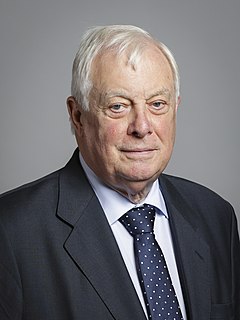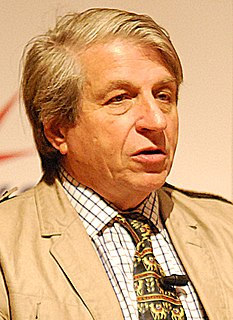A Quote by Kenneth Rogoff
Unbridled capitalism in the United States can't be sustained socially. It leads to tensions.
Quote Topics
Related Quotes
We often confuse or loosely use the ideas of crony capitalism or neoliberalism to actually avoid using the word "capitalism", but once you've actually seen, let's say, what's happening in India and the United States - that this model of US economics packaged in a carton that says "democracy" is being forced on countries all over the world, militarily if necessary, has in the United States itself resulted in 400 of the richest people owning wealth equivalent [to that] of half of the population.
I think the President's decision to withdraw the United States, to keep a campaign promise in Iraq, without leaving a stay-behind force was a mistake, and I hear that from veterans in Wyoming and from parents who lost children fighting in Iraq. We're seeing it, though, around the world. When we, the United States leads a vacuum anywhere, that emboldens others to go in, when there is no sense of deterrence by the United States that lets bad actors move and fill the void.
Actions are interesting to watch. I learn about the actors. Their movements are emblems of the tensions in this internal landscape, which their actions resolve. About-to-act is an interesting state to experience, because I am conscious of just those tensions. Acting itself feels fairly dull; it not only resolves, it obliterates those tensions from my consciousness. Acting is only interesting as it leads to new tensions that, irrelevantly, cause me to act again.
Unemployment is higher in Europe than in the United States and primarily concentrated in immigrant minority populations, so people are worried about what's going to happen and if American-style ghettos are emerging in Europe. There are some of the problems there that America sees associated with the lack of economic inclusion - family breakdown, gang behavior, and racial tensions. I get the sense that in Europe they are much more concerned about these issues than in the United States.
One of the popular views in the liberal circles of the West is that we are actually 'all victims of capitalism'. I disagree. This savage global capitalism is only one of the most terrible bi-products of the dominant Western culture of racism, greed, brutality and unbridled desire to control the world.
In the Islamic world, the U.S. is seen in two quite different ways. One view recognizes what an extraordinary country the U.S. is.The other view is of the official United States, the United States of armies and interventions. The United States that in 1953 overthrew the nationalist government of Mossadegh in Iran and brought back the shah. The United States that has been involved first in the Gulf War and then in the tremendously damaging sanctions against Iraqi civilians. The United States that is the supporter of Israel against the Palestinians.
9/11 was a signal that we were living in a new world - a world of interdependence, a world in which people could attack the United States not from the outside, but from the inside. It was a sign that the United States, the most powerful country in the world, could watch the cathedral of capitalism at the Trade Center and the heart of its defense at the Pentagon be struck internally, not really across borders, so that borders don't matter anymore.
































